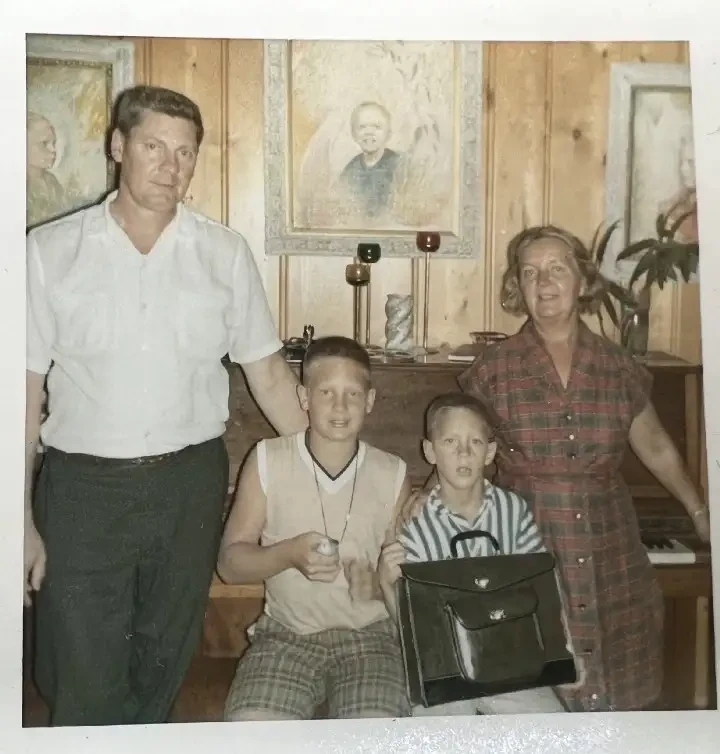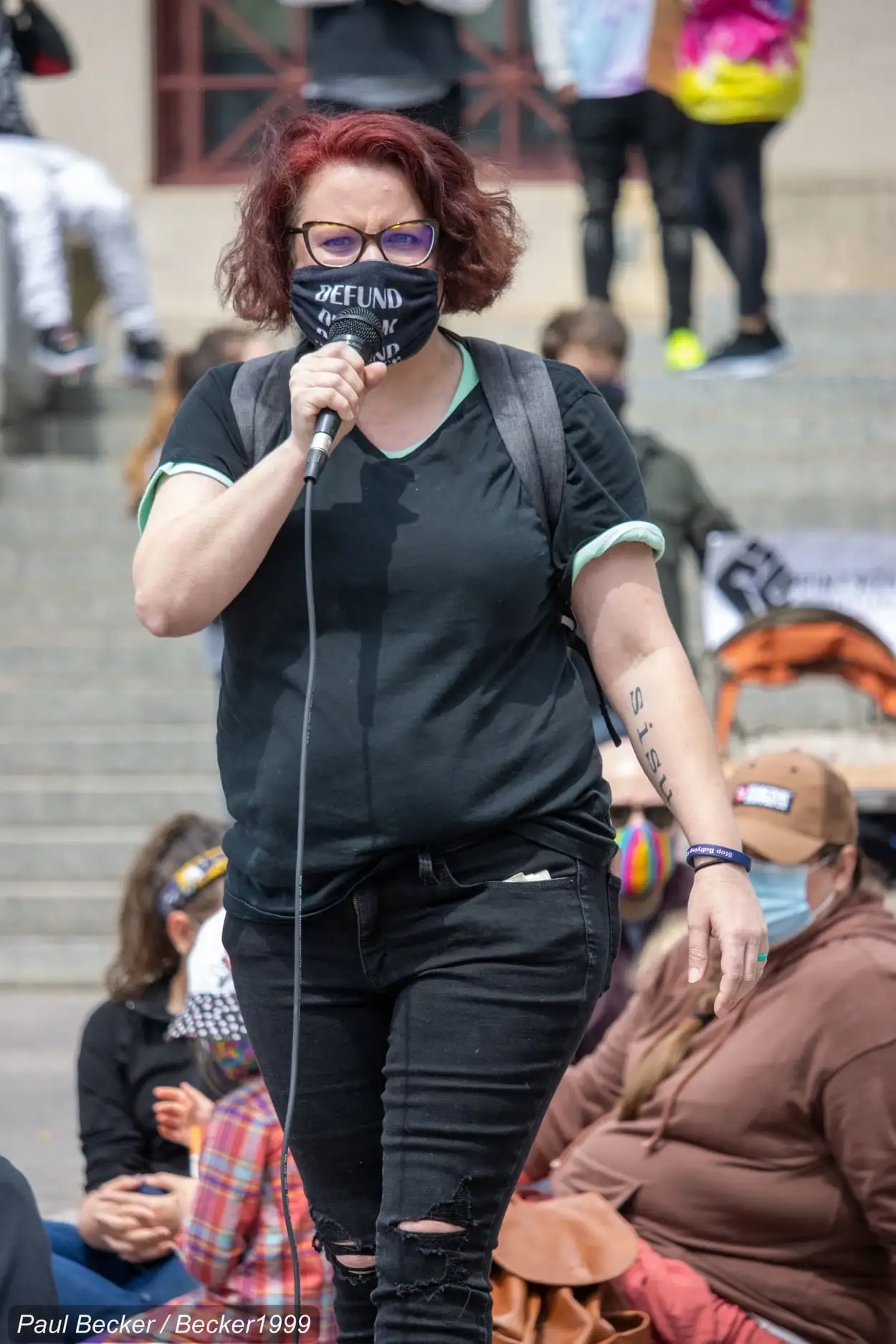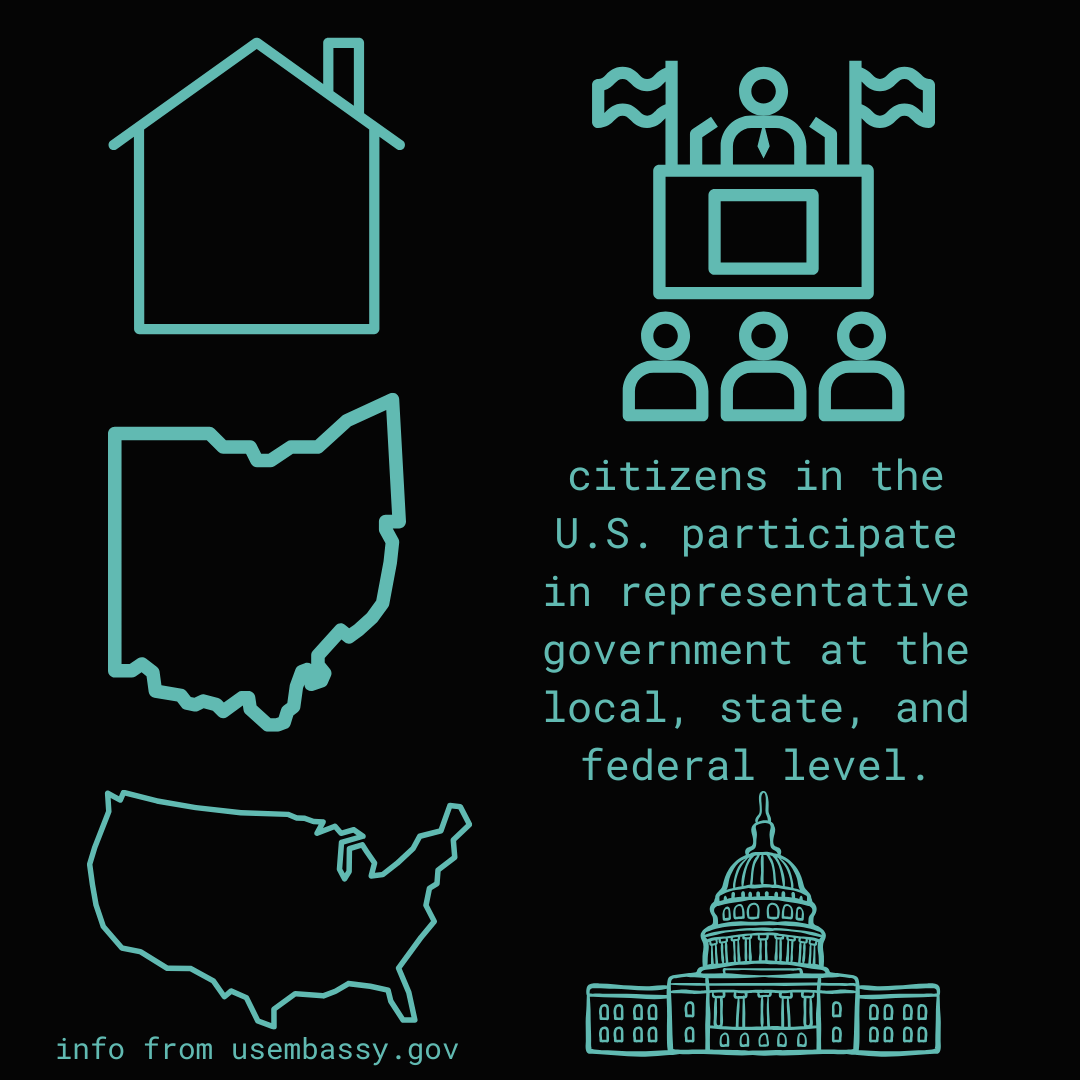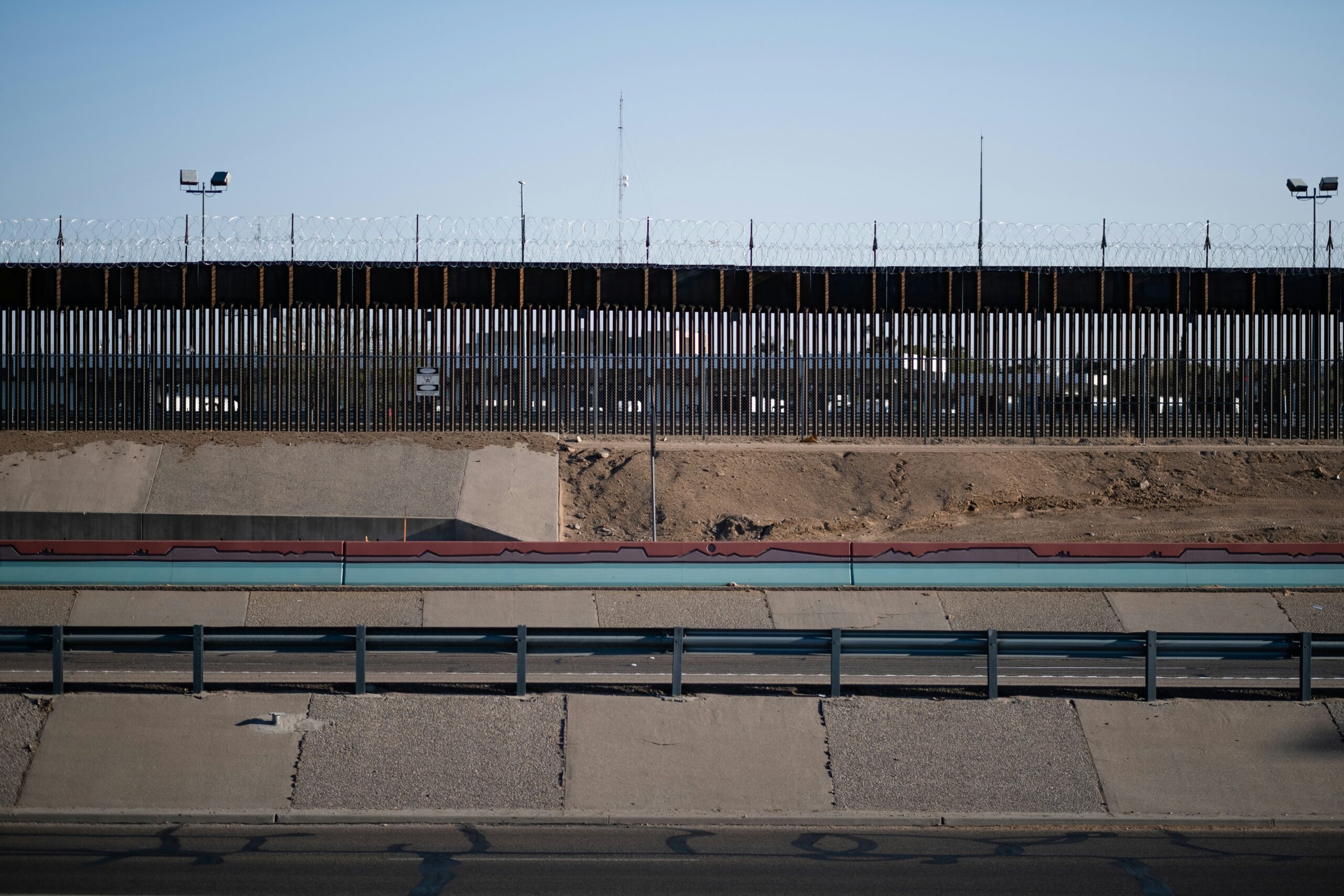I’m a licensed therapist who’s worked in mental health for decades, with personal experience of crisis calls involving police. I experienced my first psychiatric crisis call at four-years-old, and it’s safe to say that event influenced my career choice. My mother, crying and fearful, took me into the bathroom with her. She told me to go down the hall and get the neighbors. “Tell them daddy’s crazy and to call the police,” she’d said.
The Impact of A Mentally Ill Parent on The Home
Dad was away for months afterwards. It was the 1980’s, and my dad — whose parents were born over 100 years ago — was schizophrenic. We knew something was wrong.
The official word I have on this fragmented memory is that my dad held the family “at knife point.” Then, he had a forced hospitalization, for “a psychotic break” caused by “issues with his medication.” *
When my dad came home months later, he finally had a correct diagnosis for bipolar I disorder.
He’d lived with an incorrect schizophrenia diagnosis since the age of 15. Now, after nearly half his life on the wrong medications, my father finally had medications which stabilized him.
“Lithium” became part of our household vocabulary. Children’s services also became a regular part of our lives. For months, they’d visit, sit and watch us interact in our apartment.
I knew they could remove my younger sister and I from our home, and place us into foster care. I planned to fight this, if needed to. As the oldest, and an egocentric five-year-old, I was sure that I could prevent this terrible fate.
“Daddy’s crazy…but don’t tell anyone about the police”
Over the years, there’d be many more mental health-related experiences added to my life. Eventually, Dad’s mental illness became a family lore – something we’d joke about as a means of coping.
In subsequent years, whenever dad was forcibly hospitalized we began keeping it a secret. Sometimes we couldn’t tell Aiti, his mom. (I write a bit more about my dad’s family here).
I wasn’t supposed to “mention it” at family dinners if dad happened to be hospitalized over the holidays. The message was clear over the years: Daddy’s crazy. Call the police. Don’t tell.
When I was 16 I had to call the police.
Police with guns in holsters walked into our home and escorted my dad – who’d just suffered another mental health break – to an ambulance. He didn’t go peacefully.
A specific kind of humiliation happened that day. The rage and shame in our home was palpable, as my dad was once again forcibly removed by armed police.
There were really no words to describe how awful it felt. So we never talked about it.
An American Man Living With Mental Illness
My dad came from a “good, Christian, family.” My grandfather was a WWII Veteran. He’d served in the Battle of the Bulge. My grandmother was a slight blonde, first-generation American, from Finland. Like many others of his generation, my dad enjoyed outdoor summers with his family; tanning on beaches, swimming, and surfing .
He was a talented musician and Gemini who could play, write, and arrange his own and other’s music for keyboard. My father was also a recovering alcoholic, who hated AA. Yet, he still credited the group for his sobriety — which he maintained until the end of his life.
His laugh and sense of humor were a gift for those who knew him when he was living.
My dad worked as a Licensed Practical Nurse during periods when he was stable on his medications . Unfortunately, the nuances of his bipolar I disorder inevitably led to another manic episode which required hospitalization.
My father had previously received a 4F rejection during the Vietnam War draft. He’d had his high school graduation delayed due to hospitalization, and dropped out of college due to his mental health. But after suffering another severe manic episode – just as he was thriving in his employment – my dad finally accepted his permanent disability.

The Adapted American Family
My dad wasn’t a violent person.
There were multiple times when the entire family white knuckled through his manic episodes as long as we possibly could. We pushed through, even though dad’s mania had become unbearable for us all.
There were multiple times through Dad’s mental health episodes when my mother had called the police and hospitals. But unless he was actively trying to kill himself or anyone else there was nothing either could do.
Let me be clear: after the first time I was involved in a psychiatric crisis call, it became normal for us to have to allow my dad to gradually become psychotic before anyone would intervene. There was no other support for a family of four living “below the poverty line” a family so poor that we didn’t always have a car; but always lived miles from any kind of shopping or medical center, and in a region with zero public transportation.
We were constantly arranging and rearranging our lives around his illness, with no reliable help. This theme guided my childhood and teen years; not only the ebb and flow of my father’s mental health, but also the disheartening lack of help available to him/our family.
Institutionalized
Don’t mistake this writing for a rave review of the institutionalization from days of yore. My father lived with extended psychiatric and medical trauma as a result of being in state mental facilities. But the fact is he was absolutely unsafe when he was no longer lucid. He needed care.
My father’s institutionalization became my own. While my father was living, it wasn’t all jokes. I absorbed his experience, in the way children can become their parent’s empathetic caretaker through intense circumstances. He shared plenty of haunting memories with me. His retellings were so vivid the memories feel like they could be my own. Recollections about the forced holds, five-point-restraints; tales of other patients, abuses by staff, and ultimately the humiliation of behaving in ways that you couldn’t control.
The Whittled Down American Mental Health Care System
Most of my experiences with mental health crisis and trauma are thanks to Ronald Reagan.
The year I was born, Ronald Reagan signed into law the Omnibus Budget Reconciliation Act of 1981. The act was touted to increase the quality-of-life for the mentally ill and “deinstitutionalize” state hospitals. Instead, it gutted many of mental health supports that was already in place for families like mine.
Previously state-funded mental healthcare lost its capital, and a series of state hospital closures began. My dad’s inpatient stays got shorter. His mania and agitation became more palpable, his discomfort prolonged.
In the 1990s he received a Primary Progressive Multiple Sclerosis diagnosis. Now he faced a new problem: both his physical and mental health problems needed to match the right facility, with the right insurance.
“Deinstitutionalization” wasn’t real then, and still isn’t today.
“Deinstitutionalization” is a word used to imprison mostly Black and Indigenous peoples in the United States. Since the 1981 Omnibus Act, the American prison complex has increased its population by 500%. Not only has the rate of those imprisoned risen, so has the percentage of those with “serious and persistent mental illnesses” within them. The majority of those imprisoned are Black.
The numbers don’t include the horrific tidal wave of systemic homelessness which also resulted from Ronald Reagan’s ill-conceived idea to allow “state’s rights” to choose whether or not to provide mental health services.
Everyone Deserves Access to Professional Mental Health Care
As a mental health professional, I’ve seen firsthand how having the “wrong insurance,” or “wrong level-of care” can impact patients with complex medical and mental healthcare needs. Or how being denied care because there are “no beds” can negatively impact a patient’s progress.
The disabled and mentally ill deserve a quality-of-life worth living. COVID-19 and escalating fascist legislation in the United States is exacerbating the historical and current lack of mental healthcare here.
I learned early on that I had to be the one in charge until dad was bad enough for hospitalization. Although my father wasn’t violent, he also wasn’t safe. His mania made random trips to Lake Erie with two toddlers after dark seem like a good idea.
Everyone knew what the hospitals were like those years ago. What we weren’t ready for, was a complete lack of mental healthcare in their absence.
The Case For Police Abolition in Mental Health
In order for effective mental healthcare to exist in America, we the people must push to abolish the police. Police intervention on mental health crisis call does people more harm than good. It’s unnecessary and dehumanizing for police to be involved in any facet of mental health. Equally unacceptable is reinforcing family separation as a means of treatment and child welfare. Any calls for police abolition should also extend to removing courts as well.
All mental health professionals should prioritize abolition.
As a nation, the United States must face our shared history of incarceration and coercive “care” so we can intentionally disassemble it.
We Need to Overhaul Mental Health Care in The United States.
Abolition of police forces must extend to a complete overhaul of the U.S. mental healthcare system, too. We must address the impact on young human minds made by foster care and family separation systems. All mental health discussions related the abolition of police should examine suicide prevention, and rely on the insight of professionals who treat trauma and PTSD.
U.S. higher education for social workers, counselors, marriage and family therapists, psychologists, and psychiatrists must also teach the historical place of mental health in American Eugenics. Organizations such as the American Counseling Association and National Association for Social Workers have a duty to set ethics standards reflecting understanding eugenics, systemic racism, and transformative justice.
State licensing boards must be diligent in preventing therapists who engage in racist or abusive behaviors from practice.

Featured ????: My dad and I, approximately 1984
Content warnings for ableist language; descriptions of a young child in a scary situation; suicide; racism; foster care, psychiatric, and criminal justice systems.




